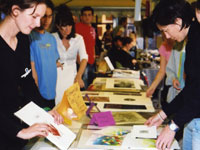 |
|
 |
| |
| |
| |
| |
| |
| |
| |
Campus: Kensington Campus
| |
| |
Career: Undergraduate
| |
| |
Units of Credit: 6
| |
| |
| |
| |
Contact Hours per Week: 3
| |
| |
Enrolment Requirements:
| |
| |
Prerequisite: 36 units of credit; Excluded: LAWS2232
| |
| |
Equivalent: LAWS2232
| |
| |
| |
| |
| |
 |
|
 |
Description
When European communist states collapsed like a house of cards, there was an explosion of euphoria in the region and around the world. Post-communism has turned out, however, to be a more complex, variable, and uncertain condition than was anticipated by many of those who greeted it with such enthusiasm. An introduction to some of the characteristic features of the post-communist world, to some of its difficulties, problems, challenges and triumphs; and to similarities and differences among the developments in post-communist societies. Discusses some of the major successes of post-communist countries and some of their major failures; students will be encouraged to reflect on similarities and differences between post-communist realities and those of the society/ies which they know.
|

